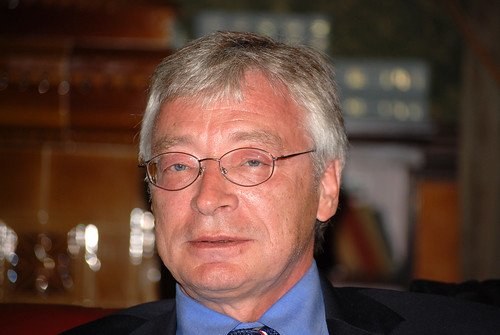I received this email today:
On THURSDAY
September 21at 7pm
in the Robsham Theatre
MICHAEL BEHE Prof. of biochemistry at Lehigh University and best-selling author of DARWIN'S BLACK BOX will lecture and lead a discussion on THE CASE AGAINST DARWIN (a plea for Freethinking in Biology). All faculty and students--especially true believers in the orthodox Darwinian paradigm--are urged to attend and join in an open, free discussion (the sort of discussion that rarely takes place on this topic). Hoping to see you there.
Ronald K Tacelli sj
Boston College Philosophy Association
I was thinking it would be later in the semester, my copy of his revised edition of
Darwin's Black Box has not arrived yet. Ah well, maybe he'll be willing to sign a "book plate." Hrm, I suppose on Wednesday I can print out some objections and read them over.
In the meantime, questions to keep in mind:
(1) Is it possible to show that something has no function? One can show that it does not have a certain function (for example, if a protein "normally" catalyzes a certain reaction, but one alters the protein and the reaction is no longer catalyzed, one would suspect that the protein no longer is able to carry out that function). But can one show that it has no function whatsoever? Perhaps, if one knows the structure and constituents of the protein.
(2) On the other hand, even if it can be shown that a protein missing certain amino acids has some sort of function what is the effect of this protein on that of which it is a part? Does the whole still thrive like it did before?
(3) Then there is the developmental question--if we are talking about complex living things and not simple living things (comprised of a single cell), what is the impact of such a change on the living thing as a whole? And how does a change in protein lead to a macroscopic change? (What is the development pathway?)
I should ask him about structuralism...
